Master Calendar
- Sep 2710:15 AMGroup Fitness Class – BarreFor the full class schedule, descriptions, and to register, please visit the UConn Recreation website (https://recreation.uconn.edu/group-fitness-schedule/).
- Sep 2710:15 AMGroup Fitness Class – Row & StrengthFor the full class schedule, descriptions, and to register, please visit the UConn Recreation website (https://recreation.uconn.edu/group-fitness-schedule/).
- Sep 2710:15 AMGroup Fitness Class – Theme Ride SaturdayFor the full class schedule, descriptions, and to register, please visit the UConn Recreation website (https://recreation.uconn.edu/group-fitness-schedule/).
- Sep 2711:00 AMGroup Fitness Class – 50/50For the full class schedule, descriptions, and to register, please visit the UConn Recreation website (https://recreation.uconn.edu/group-fitness-schedule/).
- Sep 2711:00 AMWELCOME UCONN FAMILIES!Enjoy the exhibitions on view, scavenger hunts in the galleries, chalk drawing on the patio. Shop for cool gifts and UConn Cards and Postcards in the Museum Store.
- Sep 272:00 PMCelebrate Mansfield Cooking DemosDemo stations will be set up on Dog Lane near Barnes & Noble 2pm Chef Kyle Hummus Bowl with Black Garlic Labneh and Roasted Tomatoes 3pm with Chef Rob Gochujang Cauliflower Taco with Cilantro Lime Slaw and Avocado Crema Free samples after each demo. Gluten free samples available.https://www.downtownstorrsfestival.org/ (https://www.downtownstorrsfestival.org/) All weather-related changes will be announced no later than 5:00 PM on Friday, Sept. 26. Please check the festival website. The rain location is indoors at E. O. Smith High School (1235 Storrs Road)
- Sep 272:00 PMUConn Choirs Family Weekend ConcertBe sure to stop by for this celebratory concert featuring UConn Choirs.
- Sep 278:00 PMINVINCIBLE: A Glorious Tribute to Michael JacksonPerfect for fans of all ages, this extraordinary production captures the iconic dance moves, spirit, energy, and genius of the person considered by many to be the greatest entertainer of all time. Featuring a powerhouse cast of talented performers and meticulously crafted under the masterful choreography of Jackson's longtime collaborator, Lavelle Smith Jr., Invincible was created, produced and directed by Bessie Award winner Darrin Ross of RossLive Entertainment.
- Sep 28All dayArt Exhibit in Celeste LeWitt Gallery at UConn HealthVibrant paintings by Andrea Sanchez and Jaii Marc Renee on display in the Celeste LeWitt Gallery — Join us for a meet and greet from noon to 1 p.m. Friday, Sept. 26.
- Sep 28All dayBig-E: 4-H Dog Program
- Sep 28All dayBig-E: 4-H Dog Program
- Sep 28All dayBig-E: 4-H Sheep Program
- Sep 28All dayBig-E: 4-H Sheep Program
- Sep 28All dayEight Days a Week : An Illustrated Record of Rock 'n' RollEnjoy this unique exhibition of rock music memorabilia from the archive of editor, journalist, and radio disc jockey Ken Best. This personal collection features decades worth of iconic photos, album covers, posters and promotional materials that Best has amassed while writing about music for newspapers in New Jersey and Connecticut and interviewing musicians and authors on the radio at WPKN in Bridgeport and WHUS in Storrs. Highlighted will be 50 photos of major rock 'n' roll figures by Connecticut photographer Joseph Sia, including his famous image of Jimi Hendrix at Woolsey Hall in New Haven in 1968, known as "The Shadow," from Best and Sia's 1992 book,Eight Days a Week: An Illustrated Record of Rock 'n' Roll (Pomegranate Books).
- Sep 28All dayEmployee Art Exhibit17 artists across the UConn community have their artwork on display in our Connector Gallery.
- Sep 28All dayFlyway of Life: Love Letters to Nature exhibitAn opening reception for "Flyway of Life" will take place from 5:30 to 7:30 p.m. Sept. 11 at the gallery, located in the Branford House at the UConn Avery Point campus in Groton. Admission is free.On Oct. 1 from 4 to 5:30 p.m., Koeck will be in conversation with Jon Dodd, executive director of the Atlantic Shark Institute, with food and refreshments. The event will take place in the gallery. After the conversation at 6 p.m. in the campus auditorium, a screening of Koeck's film "Flyway of Life," will be shown, followed by a question-and-answer session.
- Sep 28All dayFRAME Contest: Your Research in the SpotlightUConn and UConn Health faculty, staff, and students from all disciplines are invited to submit striking research images, graphics, or artwork. Winning entries will be displayed in OVPR spaces, transforming our walls into a gallery that celebrates the creativity and diversity of UConn research. Showcase the beauty of your research – from stunning microscopy images and bold data visualizations to fieldwork photos and original research-inspired art. Share your work with the UConn community Celebrate the creativity that drives discovery Click here (https://research.uconn.edu/frame-contest/) for contest details and entry form. Deadline: November 10, 2025 Questions: Contact research@uconn.edu (mailto:research@uconn.edu).FRAME: A creative, engaging forum showcasing UConn research.
- Sep 28All dayNational 4-H Dairy ConferenceWorld Dairy Expo is the place where the dairy industry meets. Much in the same vein, the National 4-H Dairy Conference is the place where leading dairy youth from across North America can come to interact with one another and build industry bridges that will last well into the future.More Information (https://national4hdairyconferencedotorg.wordpress.com/about/)
- Sep 28All dayNational 4-H Dairy ConferenceWorld Dairy Expo is the place where the dairy industry meets. Much in the same vein, the National 4-H Dairy Conference is the place where leading dairy youth from across North America can come to interact with one another and build industry bridges that will last well into the future.More Information (https://national4hdairyconferencedotorg.wordpress.com/about/)
- Sep 28All dayOpen Air 2025 – Outdoor Sculpture ExhibitionThe exhibiting artists are Marsha Borden, Helena Chastel, Kathryn Frund, Phoebe Godfrey, Hugh MacDonald, Bob Pavlik, Dan Potter, and R. Douglass Rice. Open Air 2025 is open daily and will remain on view through October 6, 2025. June 19, 2025 iis the last day to visit indoor art exhibitions. Exhibitions inside the AVS Gallery will resume on September 11, 2025
Load more...
Loading...


